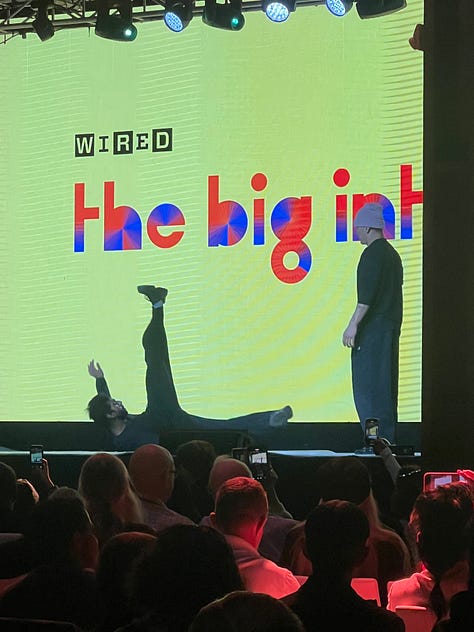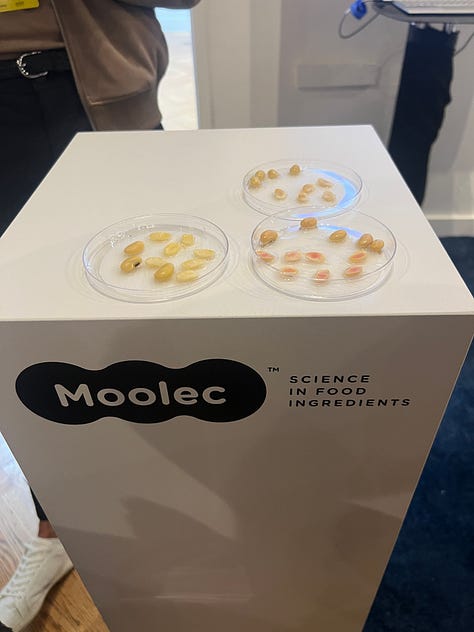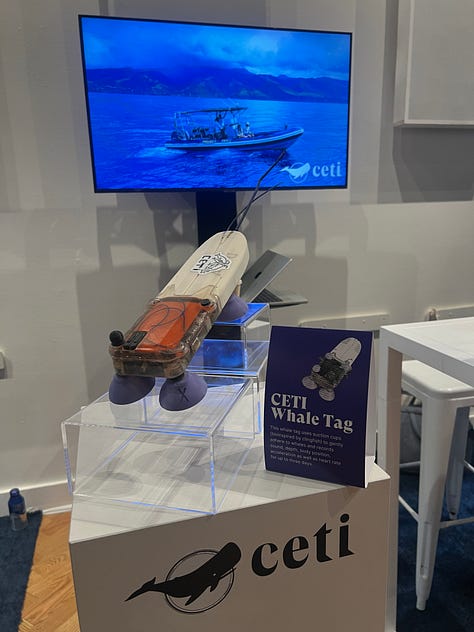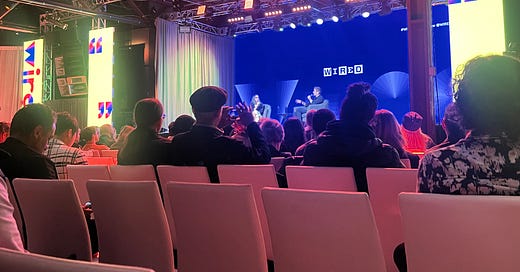Big Ideas from WIRED’s Big Interview: Innovation, Tech, and People
Hi there,
Happy midweek! I hope your week has been filled with curiosity and momentum.
The future is moving fast. I believe that one of the best ways to make sense of it all is by listening to the people who are shaping it today.
That’s why I was excited to attend WIRED magazine’s Big Interview event in San Francisco. It was a full day of fascinating fireside chats, a breaking performance (by Olympian Phil Wizard), and inspiring conversations with folks from innovative startups. Plus, I had the rare chance to sit back and listen to other folks share their expertise and passion!
Here are three notes that I jotted in my journal during the event:
Why Predictions Matter More than Their Accuracy
Are predictions of “the future” actually worth anything? Depends on why you’re making them. Meredith Whittaker, President of the Signal Foundation, called her predictions “half manifestation and half optimism as invitation”. I like that framing because it shifts the focus away from whether a prediction is “right”. Rather, the value of a prediction is in whether it inspires someone (meaning: you) to act.
Check out this video of her full fireside chat about surveillance capitalism and her work at Signal.
Design and Innovation: Tech as a Catalyst for Creativity
Tech. What is it good for? Dylan Field, the cofounder and CEO at Figma, said their tools (including AI) were intended for two things:
First, to “lower the floor”, so that “more people can participate in the process of design.”
Second, to “raise the ceiling” to empower anyone to “match the work of some of the best designers in the world.” I was more intrigued by the idea that tech “raises the ceiling” by making possible things that were never possible before … for anyone!
Here’s the video of his full conversation (including an explanation for that Enron hoodie he’s wearing).
The Aging Disruption: Data and Insights for a New Normal
“No matter what industry you’re in, no matter what job you have, aging is going to disrupt it.”
That’s the one thing that Andy Miller, SVP at AgeTech Collaborative from AARP, wanted everyone to take away from his fireside chat. I was excited to hear him echo my opinion that the great unsolved challenge in aging—and indeed in health and medicine in general—is a “ubiquitous data layer” that extracts insights from our many gadgets, tells us what we should change, and helps us understand whether the new normal is better than the old one.
You can find the whole conversation here.
Future-Forward Startups: Assistive Tech, Holograms, and More
Also, the Nvidia CEO Jensen Huang is sort of hilarious (accidentally on purpose?). Checkout this snippet from his talk:
And Mark Cuban … don’t get him started. Seriously. The video is worth watching for the sick Elon Musk burn alone.
Oh, and I had lots of fun talking to startups! I had too many fascinating conversations to summarize here, but a few standouts for me were:
Cephable, AI-powered assistive tech that helps people control technology “on their terms”,
Proto, a holographic communications platform backed by AI that enables lifelike conversations with minimal training, and
Moolec, which is using synthetic biology to produce animal proteins in plants.
And yes, I was thinking about space the whole time!
The Big Interview event was a great reminder that the future isn’t about technology. It’s about people—our fears, our hopes, and our actions.



Want to check out the entire event? Catch a playlist here. And here’s the video of the whole thing! Happy watching!
And of course, if these ideas resonate with you, please share them with other changemakers who might find them just as thought-provoking.
Be voracious,
Tiffany
Work with Tiffany
Are you or your organization looking for a speaker with expertise in biotech, innovation, health, medicine, and sustainability for your next event? I'd be honored to create an unforgettable experience for your audience. Please visit my website or send me a direct message to learn more.
Donate = Impact
PS I’d love to keep sharing science conversations with more people around the world! This will be possible when people like you share my work with your communities and also feel inspired to make a donation. You can choose to buy me a coffee and I’d be truly grateful. You can also upgrade to a paid subscription if you haven’t yet. Thank you for your support!





